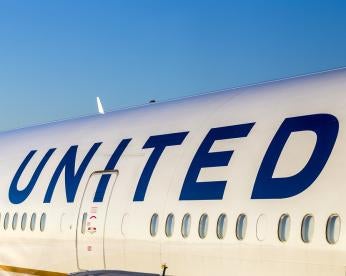We live in a society where everyone is a potential source of video ‘news’. Today people tend to reach for their phone to video a situation rather than to make any attempt to intervene or help. This week United Airlines felt the brunt of amateur news footage. Several people on United Airlines flight no. 3411 taped the aggressive removal of Dr. Dao from the plane. The videos went viral, and the incident dominated the headlines. As a result United lost an estimated $1.4billion in market value[i] and this is just the beginning. Just 3 days after the incident, Dr. Dao has already begun his legal filings. On April 12, 2017, lawyers on behalf of Dr. Dao filed a motion to preserve evidence. With the filing of the first court document in this matter it appears likely that a lawsuit will follow shortly.
Pundits have by and large argued that United was within its legal right to forcibly remove Dr. Dao from flight 3411 under the terms and conditions of United Airlines contract of carriage. A closer look at the contract for carriage itself, leads me to conclude that this is not the case. Two rules in the contract for carriage are particularly relevant to this discussion - Rule 21 and Rule 25. United Airlines Contract of Carriage Rule 21 deals with “Refusal of Transport”[ii] and Rule 25 addresses “Denied Boarding Compensation”. [iii]
Rule 25 “Denied Boarding Compensation” has two sections (A and B) but only section A is relevant to Dr. Dao’s case. Section A of Rule 25 lists 6 provisions:
1. Request for Volunteers
2. Boarding Priorities
3. Transportation for Passengers Denied Boarding
4. Compensation for Passengers Denied Boarding Involuntarily
5. Payment Time and Form for Passengers Traveling Between Points within the United States or from the United States to a Foreign Point
6. Limitation of Liability – doesn’t apply because this was not a denied boarding incident.
The provisions at issue in the Dr. Dao case are 2, 4 and 6.
Under provision 2 ‘Boarding Priorities’, United may deny boarding if, after offering compensation, there are not enough volunteers to willingly give up their seat. If a passenger is denied boarding involuntarily it is to be done in accordance with UA’s boarding priority which in Dr. Dao’s situation would be:
“b. The priority of all other confirmed passengers may be determined based on a passenger’s fare class, itinerary, status of frequent flyer program membership, and the time in which the passenger presents him/herself for check-in without advanced seat assignment.”
Under provision 4 ‘Compensation for Passengers Denied Boarding Involuntarily’ UA shall pay passengers denied boarding involuntarily 400% of the fare up to a maximum of $1350USD.
Provision 6 ‘Limitation of Liability’ limits United’s liability to actual damages up to $1350USD and also excludes recovery for punitive, consequential or special damages for ‘failing to provide the Passenger with confirmed reserved space.’
Rule 21 “Refusal of Transport” gives United to the right to remove from the aircraft a passenger who violates any of the stated reasons. Based on the facts as they have been presented to date it appears that Dr. Dao was not removed for any of the stated reasons in Rule 21: 1) Dr. Dao did not breach the contract of carriage; 2) He was not asked to leave because of a government request, regulation or security directive; 3) There was no force majeure or other unforeseeable condition; 4) There was no necessity to search Dr. Dao or his property; 5) There was no issue with his identification; 6) Dr. Dao had paid for his ticket; 7) He was not travelling across international boundaries and finally; 8) None of the 19 safety issues stated in Rule 21 applied.
The problem that United faces is that, it appears, they breached their own Carriage Contract. Dr. Dao was not denied boarding. United should have, as most carriers do, taken care of the oversold situation before boarding passengers. Once boarded, UA’s own contract controls with respect to why a passenger can be removed from a plane and being oversold is not a stated reason.
It has been argued that ‘boarding’ includes being seated on the plane while the plane is still at the gate. As boarding is not defined in the contract, and when read in conjunction with Rule 21 which uses the language ‘remove from the aircraft’, there is at best ambiguity and as anyone who has studied contracts knows – ambiguity is construed against the drafter.
It would appear after analyzing the Contract of Carriage that United was not within their right to have Dr. Dao forcibly removed.
This ultimately leads to an analysis of the limitation of liability clause. This too should fail. The limitation of liability should be restricted to instances where there was a denial of boarding. Nothing in United’s limitation of liability should apply to Dr. Dao’s inevitable myriad of claims associated with his forcible removal from the plane.
Simple common sense, not to mention following their own terms and conditions, could have averted this PR nightmare for United. The terms and conditions provides for up to $1350USD in compensation for an involuntary bump, so why stop at $800USD when they most likely would of had takers once it crossed the $1000 threshold. Hopefully lesson learned by United and the other carriers who are overselling flights.
[i] http://fortune.com/2017/04/11/united-airlines-stock-drop/
[ii] https://www.united.com/web/en-US/content/contract-of-carriage.aspx#sec21
[iii] https://www.united.com/web/en-US/content/contract-of-carriage.aspx#sec25




 />i
/>i
